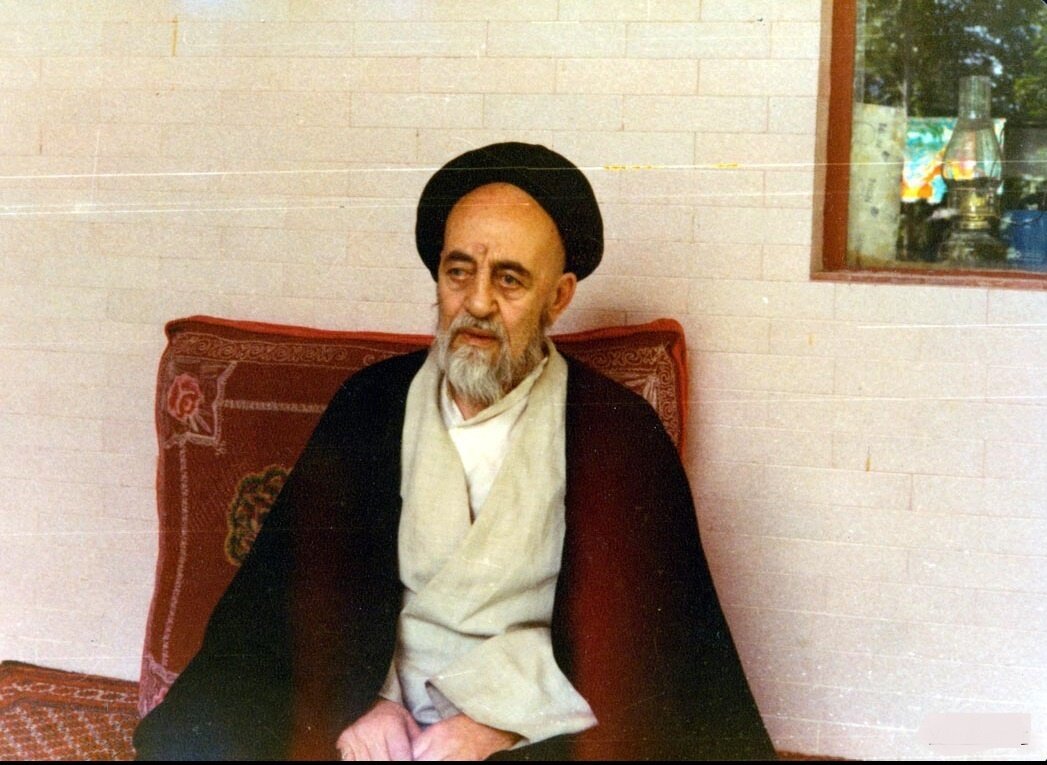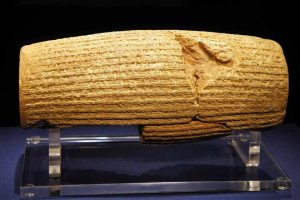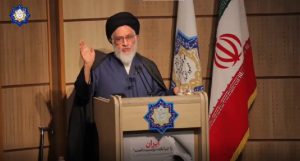According to the news agency Online NewsQuoted from Ibna Doctor Qasim PourhassanProfessor of Philosophy at Allameh Tabataba’i University wrote: Allameh Seyyed Mohammad Hossein Tabataba’i put forward the theory of “credit perceptions” at the beginning of the thirties; Although comments have been written on this theory so far, it seems that no desirable readings have been made. Some viewed this theory as a reaction to the left -wing streams of the twenties, and thought Allameh tried to show that by separating two types of perceptions, not all human perceptions were of the same type and each have special traits. The “real perceptions” that are permanent and necessary, given the possibility of obtaining certain knowledge, change and change in them, but change is the specific characteristic of “credit perceptions”.
Another group has been considered that Allameh is seeking credit in its general and vast meaning. This type of credit, which has been initiated by Farabi in the book of al -Hurf and explaining the process of progress of human reason and social life (although some have been incorrectly attributed to Suhrawardi), had a strong impact on the concepts of the tradition of Islamic philosophy, and Allameh after the real perceptions of the third and fourth articles in the third and fourth articles.

Since the time of Farabi and Ibn Sina, Islamic philosophers have raised the issue of the realization or objectivity and authenticity of existence in a confrontation with its validity, and have brought this research under the ontological system. This approach must be incorporated into the intellectual authenticity or theoretical wisdom, and Suhrawardi’s objections to the validity of existence should also be considered in the field of self -esteem.
Farabi Initiative on the Second Book of Al -Horov [۱] And his other works on the relation of man and the areas of opinion and practice, the emergence of civilization due to the progress of reason, human relations and society, the idea of development and evolution of human reason, and finally how the language and its relation to the structure of society were exquisite and exquisite, which was not limited to practical wisdom and practical wisdom. Allameh Tabataba’i seems to have accepted the impact of many Farabi in the credit theory plan.
Fundamental question about the moral-practical principles of man in the social extent; Like “good and bad”, “must and should not”, “Necessity”, “and reality”, “righteousness and duty”, “merit and inappropriate” and the like is where do they originate? Are these things and the facts arising from the facts and the facts or are they made and forged by human beings? In other words, do humans validate and evaluate the good, the bad, or the necessity and the discovery of them? Can it be claimed that all things and worlds, such as the mental world, are discovered, or human beings are trying to respond to linguistic and mental innovations and fake them?
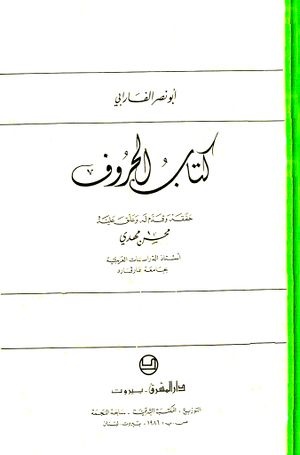
Humans in Farabi and Allameh Tabatabai are the origin of credit, and without credit, part of the individual and collective life of human beings, as well as part of the fundamental needs of human beings, will be closed. The issue is not limited to the ethics and value propositions that human beings “must” have to validate moral matters. Issues are the issues of human authority and theory of algebra, the issue of beauty and ugliness (aesthetics), jurisprudential rules (religious practice and their validity), the question of good and evil in the universe (philosophical-theological discussion), even the discussion of science and power and the attributes of God. The algebraic and good -natured conflict is one of the fundamental struggles among Islamic thinkers from the beginning, which without understanding the theory of credit, is not properly explained.
The important issue is that the theory of credit is not only the continuation of the practical wisdom of Islamic philosophers; That is to say, it is not merely a discussion about the field of action and the compression that explains the relation between man and society and human action, but rather a kind of approach in the description of human-sociological foundations in which the relation between the evolution of reason and the progress of society as well as the extent of human action. Therefore, the theory of credit should be considered a theoretical and innovative innovation of epistemological developed with an epistemological approach.
Allameh Tabataba’i describes the credit as the practical and social thoughts of man, which, with the help of emotional factors, tries to interfere between the two real worlds. As a exquisite design, he has formulated the theory of credits. Credit perceptions in the different perceptions of real perceptions are part of the epistemic system that, before Allameh, has no background in Islamic philosophy. Although Islamic philosophers have spoken of the validity of the meaning (secondary rationality), the validity of the meaning (or social credit) is one of the exquisite initiatives of Allameh Tabatabai.
The “Credit”, which was discussed in the various works of Allameh, especially in the interpretation of philosophy, argument, as well as the treatise of credit, is mainly related to social and practical areas, but at the same time it is related to the epistemological system. In the third to fifth articles of philosophy, Allameh speaks of true perceptions and in the sixth article of credit perceptions. Credit, such as true perceptions, have a session and inference relationship, nor are they arguments. The basis of the credit plan is the human-sociological theory of Allameh Tabataya. This theory can help both human understanding of man, his needs and questions, as well as his ends and goals, as well as the formation of the formation of collective systems and social life, the foundations of law and collective ethics. The epistemic results of the credit can be seen in both the question of the property and the social government that it considers political power to be human and in today’s struggles of the humanities, and to understand how reason and its role in civilization or superior state of knowledge and rationality are used.
Allameh Tabatabai formulated credit perceptions in explaining the type of relation between human thought and his actions. In other words, the credit is the theory that describes both the process of human intellect and society and expresses the relation between human action and this type of science. The origin of credit is the mind and mental assumptions, and unlike the real perceptions, they are not realized outside of mental assumptions and credentials.
Such meanings that we adapt to foreign affairs cannot be realized without our validity and reason; [۲] It is not, however, that they have no relevant credit. Credit must be outside and have a proportion of external facts. The process of forming credit implies that it is in terms of the fact that the mind can form meanings and concepts, without which the practical and social life of the human being would be impossible.
Credit, a clear realm of understanding human social relations, the basic human needs, his goals, and his or her integrity, and ultimately offers a strong framework of theorizing in the humanities, ethics and political power. In the present study, we will try to examine the aspects of Allameh’s intellectual and theoretical innovations by correctly explaining the meaning and nature of credit and its relation to society and human beings. Based on the division of perceptions by Allameh Tabataba’i into two categories of real and credit, many of the sciences of science can be examined under the credit.
Based on this division, it can be said that many areas of intellectual and knowledge such as ethics, jurisprudence, principles, sociology, practical wisdom, as well as the concepts and concepts and propositions of the humanities and the issues related to civilization and political power are below credit perceptions. However, there have been numerous interpretations of credit and its territory, as some believe that the theory of credit is an approach to explain human action. Another view states that credit is only limited to contractual territory, and credit perceptions are a plan to study collective phenomena based on social contract theory within the humanities. [۳] This approach is close to Farabi’s views in the book “Al -Harv”. However, limited interpretations of the validity of Allameh have been made, which, despite the importance of these interpretations, cannot be considered a original or fundamental description.
On the other hand, Allameh did not seek to divide the knowledge, and in particular the humanities into two descriptive and grammatical types; However, this segmentation can naturally be withdrawn from credit. Should not be assumed that the theory of credit is nothing but grammatical science; Because Allameh, in addition to the “should” and “should not” and the grammar of credit, also describes it in its descriptive aspect and acquires epistemological foundations. We believe that Allameh, in addition to the mental distress of credit perceptions, emphasizes its basic dignity in science and description of knowledge foundations and can be obtained from credit, designs and patterns to explain the humanities. Because patterns act as foundations and are capable of directing and walking.
In other words, one can distinguish between the humanities and divide them into kinds of ethics and science-based sciences or the knowledge based on divine, human, and non-divine-human values. It can be said that all knowledge, in addition to the developmental and natural origins, has a human and credit origin. Therefore, one can speak of civilization based on human-moral values and inhumane-immoral civilization. B.The same basis can be divided into normative and even religious sciences. The idea of Islamic humanities is not incorrect in its essential essence and can be the basis for the reflections of religious thinkers. It is intended that the credit is related to the description and command and can be spoken of its explanatory role and pattern.
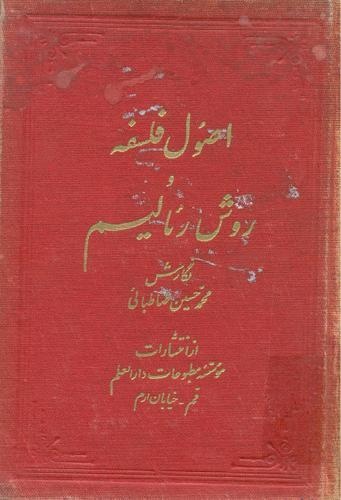
The fact is that the theory of credentials of Allameh Tabatabai is a theoretical and epistemological innovation of epistemological-epistemological approach. This view can lead to such a profound impact on the areas of anthropology, sociology, law, ethics, political power, and governmental system, and finally the overwhelming story of the humanities in Iran to transform many of the foundations and foundations. Without proper understanding of the concepts, the approach and method of its discussion and its basic foundations, as well as the irreplaceable divisions that Allameh offers, the importance and position of this discussion cannot be aware of the importance. To this end, the precise and accurate scientific method should be properly considered in this study to extract the expected results systematically.
Credit is a plan to explain human relation to the world and society, so it is both a philosophical and epistemological theory and an anthropological-sociological plan. In other words, it can be said that Tabatabai’s credit has been compared to his social science perspective. This theory is both a description of the importance of proper understanding of man and his needs and questions and ends, as well as explaining how collective systems and civil life and the foundations of collective ethics and biological rights that appear to be “al -Hassan al -Hussein” in this regard. Has been shed. The impacts and realms of credit can be seen in addition to anthropological and social studies, in ethics, humanity, political power, and the structure of power. Credit should be seen as a new perspective on explaining human-social relations with emphasis on the progress of reason and society, in which the process of emergence of civilization and its connection with the evolution of human reason is emphasized.
[۱] -Pourhassan, Qasim (1), Farabi and al-Harv, First Edition, Tehran: Sadra Publications, Chapter II, Chapters 1-4, pp. 1-6.
– Motahhari, Morteza (1), Collection of Works, Volume 2, Principles of Philosophy and Method of Realism (Footnote), Tehran: Sadra Publications, p.[۲]
– See: Mesbah, Ali (1), Criticism of the Foundations of empiricism in the humanities. Qom: Wisdom of Isra’ah, Sh. 1, pp. 1-4[۳]
1
منبع: www.khabaronline.ir

